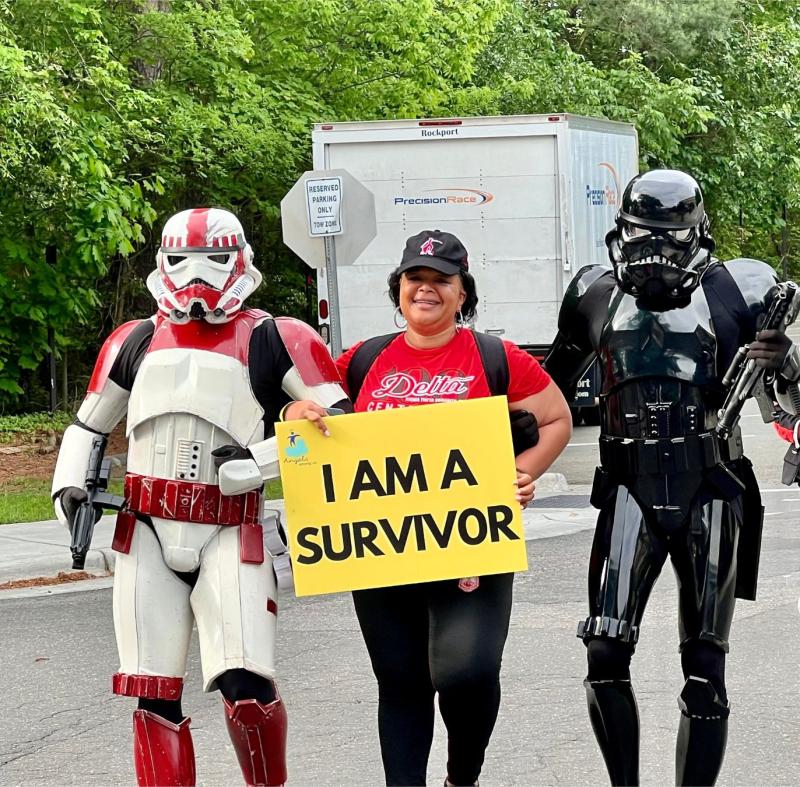
Erica Estep, was an associate director of residential life at North Carolina Central University. During a move-in briefing, her boss noticed something was off. Erica was forgetting words, pausing awkwardly, and stumbling over her sentences. Concerned about her behavior, her boss urged her to see her primary care physician at Duke Health. Suspecting a stroke, her doctor ordered a CT scan at the Duke Cancer Center despite her normal blood pressure. Erica's mother came to support her, and although Erica was frightened, she maintained her composure to avoid alarming her mom.
The CT scan revealed a brain mass, and further MRI imaging showed a tangerine-sized tumor pressing on critical areas of her brain. Within four days, Duke neurosurgeon Steven Cook, MD with the assistance of Allan Friedman, MD, performed a craniotomy to remove the tumor. After a two-week recovery, the biopsy results revealed a left frontal anaplastic oligodendroglioma, grade 3, diagnosed on August 30, 2019.
Erica underwent seven weeks of radiation and chemotherapy, followed by a year of chemotherapy. With a positive attitude and immeasurable support from her family and friends, she maintained a resilient spirit. Post-treatment, she participated in a cancer survivorship program with free counseling services, crediting Duke's resources, particularly their social workers, for aiding her journey. "I can’t thank them enough," she remarked.
Life after treatment posed new challenges, including depression, memory loss, and bipolar disorder. According to the National Brain Tumor Society, depression, memory issues, and bipolar disorder are common after brain tumor surgery due to the physical changes in brain tissue caused by the tumor and its treatment, including surgery, radiation therapy, and chemotherapy. Navigating these difficulties, Erica found solace in therapy and community involvement. She married in August 2023 and now gets annual MRI check-ups, all showing great results. Staying positive, she states, "I did the Angels Among Us event and have walked with them ever since I’ve been diagnosed to help me feel like I have a sense of community."
Angels Among Us is an annual fundraiser held by the Preston Robert Tisch Brain Tumor Center at Duke, aiming to support brain tumor research and patient care through a 5K & Walk of Hope. Erica advocates for women of color with brain tumors and invisible disabilities, finding hope in her faith and community. She actively participates in the Chapel Hill-Carrboro chapter of Delta Sigma Theta, Inc., involving her sorority in Angels Among Us. Discovering and supporting other women going through similar experiences has been a source of hope and strength for Erica.
"This is not the final chapter of my story," she declares, continuing to inspire and advocate for others on similar journeys.
To learn more about Angels Among Us, click here.